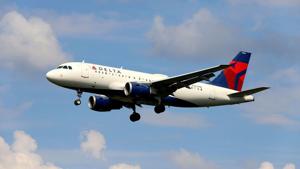Survey: Teachers not optimistic about the future of education
Over 60% of teachers surveyed in the U.S. believe issues within education have gotten worse over the past two years, according to the Connecticut Education Association.
The 2025 Back to School Survey conducted by the CEA pulled answers from 1,000 teachers across all states, with a majority having taught for over 20 years. The survey showed teachers’ concerns on topics such as mental health, distractions and student behavior.
One of the first questions posed to teachers was “How satisfied are you with conditions facing educators like you in your school district these days?”
Only 2.73% of teachers answered “very satisfied.” That is 25 teachers out of 1,000.
When asked if teachers feel equipped to deal with students’ mental health challenges, 77% answered no.
“The problems in our schools are growing more severe, and teachers’ calls for action are being ignored, leaving students to pay the price,” CEA President Kate Dias said. “Our educators are underpaid, disrespected, and stretched beyond their limits – and many are being driven out of the profession in search of careers that value their work, pay them fairly, and treat them with dignity – leaving many classrooms without certified educators to teach our children.”
In the past few years, schools have faced major budget cuts, and according to the survey, almost 80% of teachers believe that teaching is a “high-stress job” and has contributed to the shortage of educators.
“When we look at Connecticut as a state, there’s a lot of lip service toward teachers and teaching and learning in the state, and there’s not a lot of action when it comes to actionable things that we could be doing to improve conditions for our teachers and our students, to be quite honest,” CEA Vice President Joslyn DeLancey said.
Even states where teachers feel the most supported are seeing historically low test scores.
“American students are testing at historic lows across all of K-12 … nearly half of America’s high school seniors are testing at below basic levels in math and reading,” Secretary of Education Linda McMahon said. “Despite spending billions annually on numerous K-12 programs, the achievement gap is widening, and more high school seniors are performing below the basic benchmark in math and reading than ever before.”
Latest News Stories

Hundreds of flights canceled in Chicago as winter storm wreaks havoc

Fiscal Fallout: States continue to increase budgets despite end of COVID emergency

Lake Land College Board Approves Bids for Fire Alarm System, John Deere Engine

WATCH: IL legislator wants more transparency for taxpayer funded credit cards

Moore drops 31 as Lady Warriors top Rantoul for 3rd Place at Oakwood

Top-seeded Warriors roll past Okaw Valley in opener

Colorado lost record $24 million to data scams in 2024

Trump vows to pause migration after D.C. shooting

Assaults against ICE up 1,153% in 11 months

Illinois quick hits: Deer harvest totals; IHSA voting begins

Texas officials seek to establish Turning Point chapters

National Guard member shot near White House dies




